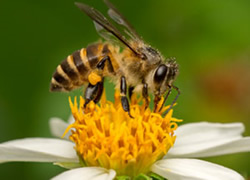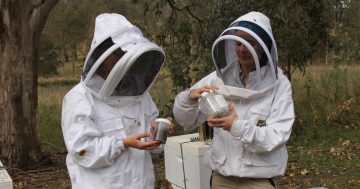 The Department of Agriculture and Fisheries is ramping up its surveillance efforts in an attempt to keep the State free of a damaging mite species detected last year.
The Department of Agriculture and Fisheries is ramping up its surveillance efforts in an attempt to keep the State free of a damaging mite species detected last year.
The National Varroa Mite Eradication Program, led by Biosecurity Queensland, kicked into action in July 2019 following the discovery of a nest of Asian honey bees (Apis cerana) at the Port of Townsville.
The nest was later confirmed to be carrying varroa mite (Varroa jacobsoni).
Manager of the program, Rob Stephens said with no more Asian honey bees found, the program would now transition to a ‘proof of freedom’ phase.
“This means more targeted surveillance activities including sweep netting, aerial pheromone trapping, rainbow bee-eater pellet sampling, bee lining and setting up feeding stations as well as industry awareness and community engagement activities,” Mr Stephens said.
“January is usually a time when bees are more active, especially if there is rain to promote flowering vegetation.”
He said varroa mite was a tiny parasite that could have serious consequences for the pollination of crops and honey production if it were to spread to Australia’s population of European honey bees.
Mr Stephens said community help was especially important as the program worked to prove Queensland was free of varroa mite.
“Australia is the only inhabited continent in the world to be free of varroa mite and we want to keep it that way,” he said.
“The local community has been terrific at keeping an eye out and reporting sightings of bees to us with more than 270 calls received since July.”
He said people should report unusual bees, nests or swarms by calling 13 25 23.
“Like our European honey bee, the Asian honey bee (pictured) will forage on flowers but is smaller, not as hairy and looks darker and glossier,” Mr Stephens said.





